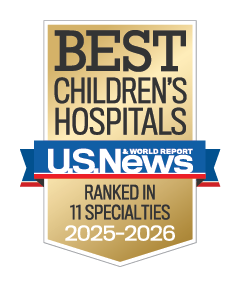
Print | Back to Main Guidelines Listing
UCSF NCNC (Northern California Neonatology Consortium)
This work is licensed under a Creative Commons Attribution-Noncommercial 4.0 International License
Table of Contents
Executive summary
Objectives
- To eliminate practice variation around Infant Car Seat Challenge (ICSC) testing.
- To reduce unnecessary prolonged hospital stays or use of car beds for infants.
Recommendations
- The NCNC does not recommend routine ICSC testing before discharge for preterm infants or other infants thought to be "at risk" for abnormal oxygenation when in a carseat.
- Parents and other care providers should be counselled regarding safe car seat use and be able to demonstrate appropriate technique and practice - preferably using their own car seat - before their infant is discharged from hospital.
Methods
This guideline was developed through local consensus based on published evidence and expert opinion as part of the UCSF Northern California Neonatal Consortium.
Metrics Plan
Introduction
Inclusion Criteria:
- Any infant in whom a car seat test might previously have been considered. For example:
- Are less than 37 weeks GA at birth, or less than 2500 grams
- Have other medical conditions, which may put the infant at risk for respiratory compromise in a car seat
- Infant with respiratory or cardiac conditions
- Infants with neuromuscular abnormalities
- Infants with craniofacial malformations that can lead to abnormal airway
- Infant with history of apnea
- Any infant thought to be "at risk" for abnormal oxygenation
Background
- The American Academy of Pediatrics (AAP) recommends that all neonates born at < 37 weeks gestation receive a pre-discharge Infant Car Seat Challenge (ICSC) to assess the risk for desaturation, apnea, or bradycardia
- The Canadian Pediatric Society (CPS) does not recommend ICSC
- Kaiser Permanente in Northern and Southern California does not perform car seat tests
- A retrospective review of 1173 preterm neonates over 2 years found no statistically significant or clinically important difference between those who passed and those who failed (Davis et al. 2013).
- Another study looked at 7899 infants cared for in 788 hospitals (Jensen et al. 2017)
- Car seat challenge failure was associated with longer post-test hospitalization, but no difference in the risk adjusted odds for 30-day mortality or hospital readmission
- A study of 60 preterm infants born between 300/7 weeks' GA to 366/7 weeks' GA were studied at a minimum corrected GA of 350/7 weeks using three consecutive ICSCs, conducted every 24 h to 48 h. (Davis et al 2014).
- 11% of infants that passed a first test failed one of the two subsequent tests.
- These studies cast doubt as to the reliability, reproducibility, and utility of the ICSC.
Recommendations
- Using a car seat challenge (ICSC) to determine if a baby can be safely discharged home should not be standard practice due to inconsistency of ICSC results and lack of association with mortality risk.
- A car seat test may be done on a case-by-case basis if there is provider concern, but there is minimal evidence for doing so.
- Instead, safety for discharge should be assessed based on other signs of physiologic maturity
- Parents and other care providers should be counselled regarding safe car seat use and be able to demonstrate appropriate technique and practice - preferably using their own car seat - before their infant is discharged from hospital.
References
Davis, N. (2015). Car Seat Screening for Low Birth Weight Term Neonates. PEDIATRICS, 136(1), 89-96. doi:10.1542/peds.2014-3527
Davis, N., Condon, F., & Rhein, L. (2013). Epidemiology and Predictors of Failure of the Infant Car Seat Challenge. PEDIATRICS, 131(5), 951-957. doi:10.1542/peds.2012-2775
Davis NL, Gregory ML, Rhein LM. Test-retest reliability of the infant car-seat challenge. J Perinatol 2014;34(1):54-8.
Jensen, E., Foglia, E., Dysart, K., Aghai, Z., Cook, A., Greenspan, J., & DeMauro, S. Car Seat Tolerance Screening in the Neonatal Intensive Care Unit: Failure Rates, Risk Factors, and Adverse Outcomes. J Pediatrics 2018; 194: 60-66.
Narvey, Michael; Canadian Paediatric Society, Fetus and Newborn Committee. Assessment of cardiorespiratory stability using the infant car seat challenge before discharge in preterm infants (< 37 weeks’ gestational age). Paediatr Child Health 2016;21(3):155-58.
Disclaimer
These clinical practice guidelines are based upon the evidence-based consensus opinions of consortium members affiliated with UCSF Benioff Children's Hospitals. They are intended to guide pediatric/neonatal providers, but do not substitute for individual clinical judgment. Evaluation and treatment of specific patients should be adapted based upon the unique conditions of each patient, family and clinical environment.
UCSF NCNC (Northern California Neonatal Consortium). Originated 05/2019. Last updated 9/2019.
Approved by UCSF Pharmacy and Therapeutics Committee: 5/12/2021
Approved by UCSF ICN Patient Safety Committee: 12/17/19



